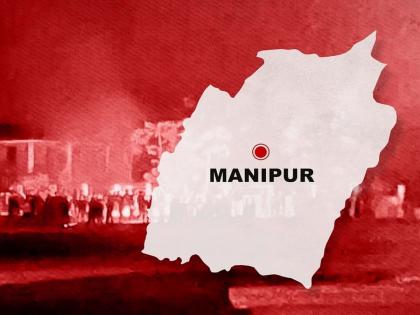Manipur High Court Revokes Order on Meiteis Inclusion in Scheduled Tribe List
By Lokmat English Desk | Updated: February 22, 2024 18:51 IST2024-02-22T18:51:24+5:302024-02-22T18:51:41+5:30
The Manipur High Court has directed the elimination of a controversial paragraph from its March 2023 order, wherein it ...

Manipur High Court Revokes Order on Meiteis Inclusion in Scheduled Tribe List
The Manipur High Court has directed the elimination of a controversial paragraph from its March 2023 order, wherein it suggested that urged the state to consider including the Meitei community in the Scheduled Tribe list, saying the paragraph was in conflict with the Supreme Court's constitution bench stance.
During a review petition hearing on Wednesday, a single-judge bench of Justice Golmei Gaiphulshillu rescinded the March 27, 2023 directive, which is believed to have incited the ethnic violence resulting in over 200 casualties.
The controversial paragraph from last year's ruling, which urged the state to promptly consider including the Meitei community, was marked for removal. This paragraph stated that the state government "shall consider the case of the petitioners for inclusion of Meetei or Meitei community in the Scheduled Tribes list, expeditiously, preferably within a period of four weeks" from the date of receipt of the order.
Paragraph 17(iii) of the judgment has been removed. This paragraph instructed: "The first respondent should promptly consider the petitioners' case for including the Meetei/Meitei community in the Scheduled Tribe list, preferably within four weeks from the date of receiving a copy of this order, based on the assertions outlined in the writ petition and consistent with the order issued in W.P.(C) No. 4281 of 2002 dated 26.05.2003 by the Gauhati High Court.
The paragraph was removed due to a perceived misunderstanding of the law. The bench of Justice Golmei Gaiphulshillu noted in Wednesday's order that the paragraph in the original judgment was issued based on a misconception of the law. This misconception arose because the petitioners reportedly did not adequately assist the court during the hearing of the writ petition, leading to confusion regarding both factual and legal aspects of the case.
Open in app